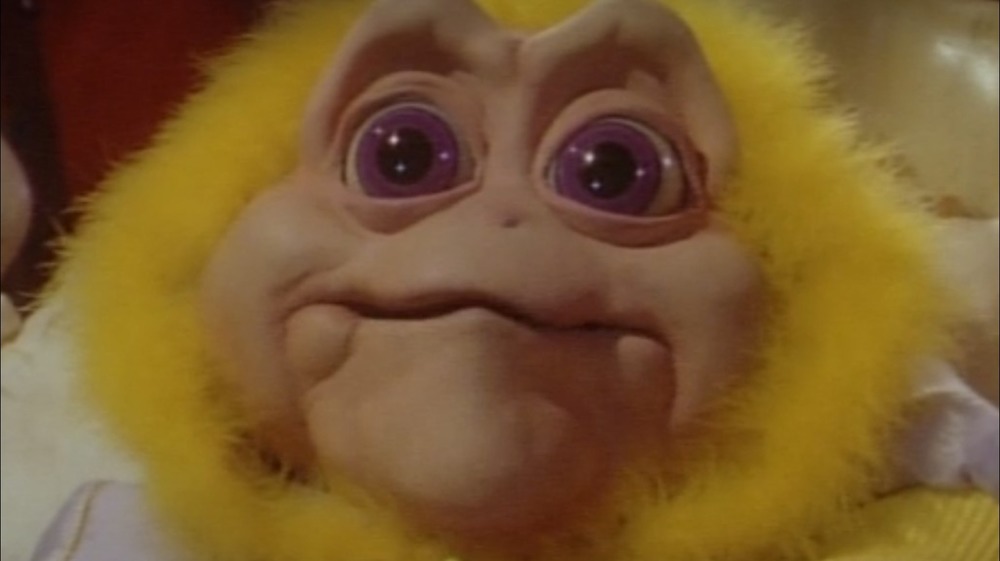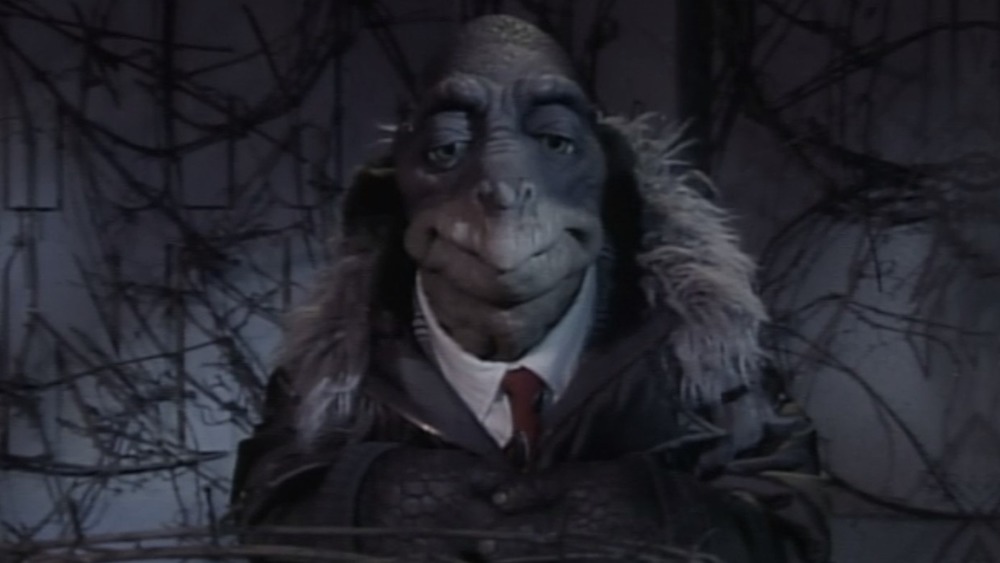The Ending Of Dinosaurs Explained
"I'm the baby, gotta love me!" trilled the voice of Kevin Clash from the mouth of what appeared to be a big toe wished to life by a lonely old cobbler. Half of America went "Aw, that's cute," while the other half thought, "Man, I would love to watch that thing freeze to death in a world-ending catastrophe." Against all odds, the latter group got their wish — in the form of the Dinosaurs finale, "Changing Nature," the darkest final episode ever.
"Changing Nature" represented the last ride of one of primetime's weirdest shows. Dinosaurs told the all-animatronic sitcom story of the Sinclair family, a suburban household full of terrible lizards, albeit with jobs, power bills, date nights, and so on. Thanks to the distinctive visual spectacles brought to the table by the Jim Henson Company, the series was instantly eye-grabbing, and the use of the catchphrase-chucking Baby Sinclair locked Dinosaurs into the cultural dialogue, enough so that the show could get away with just about whatever they wanted — "As long as the Baby hit his father over the head with a pot, we could use that to hide anything," series co-creator Michael Jacobs recalled in an interview with Vulture.
And they did. Dinosaurs was replete with heavy-handed messages, exploring subjects like steroid abuse, homophobia, and the self-instigated distribution of di-no DNA. And while the program had racked up an enviable audience by the end of its third season, it was also roughly as expensive as a show could get due to the extensive use of high-tech puppets and animatronic suits. The writing was on the wall by the time that ABC brought down the axe, and the production team decided that the Sinclairs were overdue for extinction — televised, childhood-scarring extinction.
Dinosaurs, hard goodbyes, and looming puppet death
The final episode of Dinosaurs views like the bleakest possible take on If You Give A Mouse A Cookie, showing viewers a Rube Goldberg climate disaster brought on by unrepentant corporate greed. It all starts when Wesayso, the show's ubiquitous evil megacorp, sprays insecticides that kill off the annual migration of lovable Bunch Beetles. The Bunch Beetles, it turns out, are a necessary part of the local food chain — on their way into town every year, they chow down on the Cider Poppy vines that would otherwise go unchecked.
Now facing an excess of vines, the company sprays herbicides, accidentally killing off all plant life on Pangea, causing extreme famine. One thing leads to another. Eventually, Wesayso comes to the conclusion that the only way to bring back the plants is to drop bombs into volcanoes to make it rain. The result: the sun is blocked out, and the world enters a new ice age, as the camera slowly pans across the Sinclair family's now-frozen home. The long range forecast, according to the news, calls for "snow, darkness, and extreme cold." "Goodnight. Goodbye," says the local newscaster, and the world fades to black.
And that's how the show with the silly dinosaur puppets ended: not with a bang, but with the unspoken implication that the family was eventually going to have to eat the baby.
The implications of the Dinosaurs finale weren't particularly subtle, nor were they supposed to be. The allegory of the Bunch Beetle came at a point in history when increasing industrialization and disregard for Earth's ecosystem was being drawn into sharp focus, with concerns about an ecological cascade failure at the forefront of environmentalists' minds. "My writing partner Bob Young and I decided that the end of the dinosaurs should come from the lowest possible form of creature," Jacobs told Vulture in 2018. "We felt that the metaphor in the episode had to be that we, as humans, may be utterly unaware of what will come to get us if we are not vigilant."

